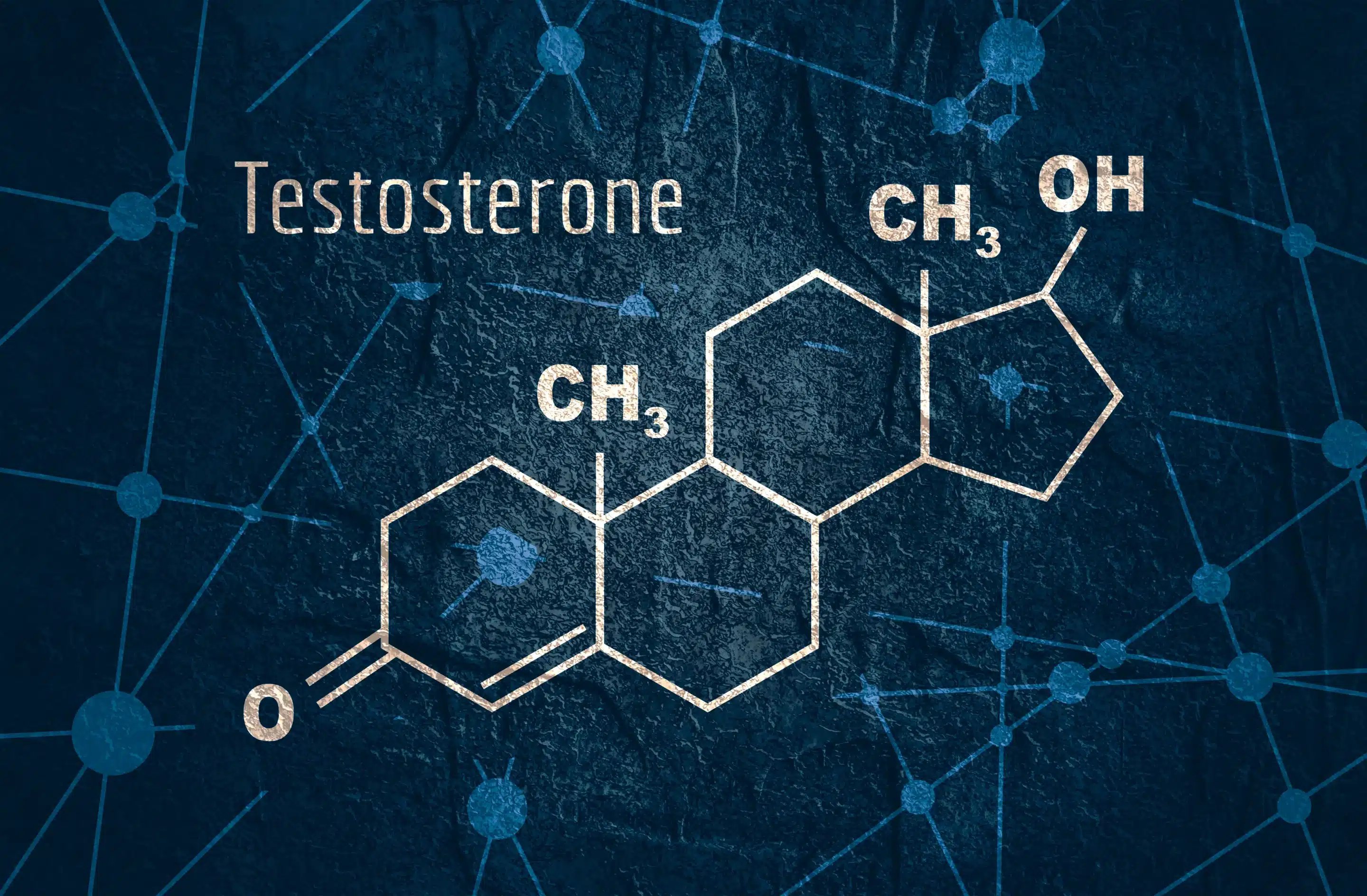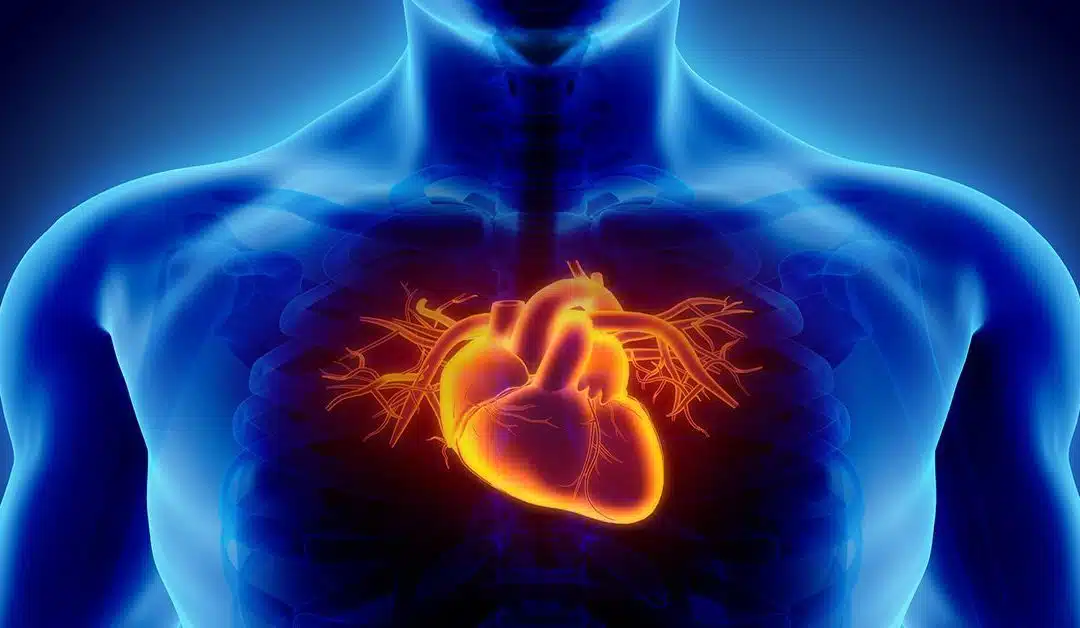Testosterone, often regarded as the quintessential male hormone, plays a pivotal role in numerous bodily functions. While it’s commonly associated with male sexual characteristics, testosterone is also present in women, albeit in smaller quantities. This hormone is crucial for maintaining various physiological processes, impacting everything from muscle mass to mood regulation.
Our bodies harbor an intricate communication network that scientists are only beginning to understand – the connection between testosterone and our gut microbiome. This relationship, termed the “microgenderome” when first introduced in 2013 [1], represents one of the most intriguing areas of modern health research.
The gut houses trillions of microorganisms, with each region of our digestive tract hosting distinct microbial communities [1]. What makes this particularly interesting is the bidirectional nature of the testosterone-gut relationship. Our gut bacteria influence testosterone production, while testosterone simultaneously shapes the composition and health of our microbiota.
Let’s walk through the complex ways testosterone affects microbial diversity, the specific bacteria linked to testosterone levels, and how things like diet impact this delicate balance. Understanding this connection helps us create an all-encompassing approach to improve both gut and hormone health.
Testosterone’s Role in Regulating Gut Microbial Diversity
The relationship between testosterone and our gut microbiome operates through several sophisticated biological pathways. This steroid hormone extends its influence far beyond reproductive tissues, actively shaping the microbial communities that call our intestinal tract home.
-
Leydig Cell Function and Testosterone Secretion Pathways
- Testosterone synthesis begins in the specialized Leydig cells nestled within testicular tissue. These cells respond precisely to luteinizing hormone (LH) signals originating from the pituitary gland. Through a series of enzymatic transformations, they convert cholesterol into testosterone, which then enters systemic circulation.
- Once in the bloodstream, testosterone follows three primary pathways. It binds to sex hormone-binding globulin (SHBG) for efficient transport throughout the body, interacts with androgen receptors embedded in various tissues, and influences numerous physiological processes including gut barrier integrity. The adrenal glands contribute additional testosterone to this hormonal pool, creating a more complex regulatory system that affects intestinal health.
-
HPG Axis Influence on Intestinal Homeostasis
- The hypothalamic-pituitary-gonadal (HPG) axis functions as a master communication network linking brain function with reproductive health. This axis simultaneously orchestrates intestinal homeostasis through interconnected mechanisms that most people never consider.
- Gonadotropin-releasing hormone (GnRH) pulses serve dual purposes – they drive testosterone production while also influencing gastrointestinal motility patterns. The feedback loops connecting sex hormones with gut neurons create a delicate balance that supports proper digestive function. Perhaps most intriguingly, immune cells within gut-associated lymphoid tissue (GALT) maintain active communication with gonadal tissues, creating a biological dialogue between these seemingly separate systems.
These pathways work together to maintain the precise conditions necessary for both optimal gut function and healthy microbial communities.
-
Testosterone’s Effect on Microbial Richness and Evenness
- The connection between testosterone levels and microbial community structure reveals fascinating patterns in our intestinal ecosystem. Higher testosterone concentrations correlate with greater microbial alpha diversity, essentially creating a more robust and resilient gut environment.
- Men with optimal testosterone levels typically harbor balanced bacterial populations across multiple phyla, rather than allowing one or two groups to dominate their intestinal landscape. These diverse communities demonstrate greater stability when faced with potential pathogenic invasions, creating a natural defense system within the gut.
- Testosterone appears to act as a selective force, encouraging the growth of beneficial bacterial species while simultaneously inhibiting potentially problematic ones. This hormonal influence helps maintain the environmental conditions that support intestinal wellness.
In short, testosterone helps beneficial bacteria grow while stopping potentially harmful ones, which creates a healthy gut environment. This two-way relationship means changes in testosterone levels can affect your gut microbiome’s makeup by a lot, which might influence your overall health beyond reproductive function.
Signs of Imbalanced Testosterone and Gut Health Issues
Recognizing the signs of imbalanced testosterone and gut health issues is essential for timely intervention. Common symptoms of low testosterone include fatigue, decreased libido, and mood changes. On the other hand, high testosterone levels may manifest as aggressive behavior, acne, and increased body hair.
Gut health issues often present as digestive discomforts such as bloating, gas, constipation, or diarrhea. In addition, individuals may experience food intolerances, unexplained weight changes, and frequent infections. These symptoms can indicate an imbalanced gut microbiome, potentially linked to hormonal imbalances.
Microbial Taxa Associated with Testosterone Levels
Research indicates that testosterone levels can alter the diversity and abundance of gut bacteria. Higher testosterone levels have been associated with a more diverse microbiome, which is generally considered beneficial for health. A diverse microbiome is better equipped to handle dietary changes and resist pathogenic invasions, contributing to a stronger immune system. Scientific studies have identified distinct bacterial signatures that distinguish men with high testosterone levels from those with low levels. These microbial patterns reveal consistent associations that help us understand which specific bacteria thrive in different hormonal environments.
-
Positive Correlations:
Several bacterial genera demonstrate strong positive relationships with testosterone levels in men:
- Ruminococcus shows the most robust correlation with testosterone levels and displays the greatest sensitivity to hormonal fluctuations [1]
- Dorea exhibits significant positive correlation across multiple research studies [1]
- Megamonas maintains a positive association with higher testosterone levels [1]
- Acinetobacter correlates positively with testosterone concentrations [2]
Men with elevated testosterone levels consistently harbor more diverse gut microbial communities compared to their low-testosterone counterparts [2].
-
Negative Correlations:
Conversely, certain bacterial taxa show inverse relationships with testosterone:
- Lachnospirales maintains a significant negative correlation with testosterone [3]
- Blautia demonstrates a statistically significant negative association with testosterone while simultaneously correlating positively with fasting blood glucose and total cholesterol levels [3]
- Bergeyella shows negative correlation patterns with testosterone concentrations [3]
External Factors Influencing the Testosterone-Gut Axis
The testosterone-gut microbiome relationship exists within a complex web of environmental influences that can either strengthen or disrupt this biological partnership. Understanding these external factors helps explain why individual responses to hormonal and gut health interventions can vary so dramatically.
-
Impact of Diet, Antibiotics, and Obesity on Microbiota
Diet plays a crucial role in maintaining both testosterone levels and gut health. A balanced diet rich in nutrients can support hormonal balance and a healthy gut microbiome.
- Dietary patterns demonstrate sex-specific effects: women typically consume more fruits and vegetables than men, explaining certain observed microbial differences [4]
- Protein: Adequate protein intake is essential for hormone production, including testosterone.
- Healthy Fats: Consuming healthy fats, such as those found in avocados, nuts, seeds, and olive oil, can support testosterone production. These fats also contribute to a diverse and balanced gut microbiome.
- Fiber: Fiber-rich foods, such as fruits, vegetables, and whole grains, promote gut health by supporting digestion and feeding beneficial gut bacteria. A diet high in fiber can help maintain a balanced microbiome.
- Antibiotic exposure: particularly during early life, increases childhood obesity risk by fundamentally altering microbiota diversity [5]
- Narrow-spectrum antibiotics like colistin can reduce Akkermansia abundance, subsequently lowering testosterone levels [6]
- Obesity creates a dual burden: negatively correlating with testosterone while positively correlating with endotoxin exposure [7]
Each of these factors doesn’t operate in isolation. Rather, they create compound effects that can amplify or mitigate the testosterone-microbiome connection.
Ways to Improve Testosterone Levels for Better Gut Health
Improving testosterone levels can have a positive impact on gut health. Lifestyle modifications, dietary changes, and medical interventions can help achieve balanced testosterone levels, thereby supporting a healthy gut microbiome.
- Exercise Regularly: Physical activity, particularly strength training, can boost testosterone production. Regular exercise also promotes a healthy gut microbiome by enhancing digestion and reducing stress levels.
- Adequate Sleep: Ensuring sufficient sleep is crucial for hormonal balance. Sleep deprivation can lead to decreased testosterone levels and negatively impact gut health. Aim for 7-9 hours of quality sleep each night.
- Stress Management: Chronic stress can lower testosterone levels and disrupt gut health. Incorporate stress-reducing practices such as meditation, yoga, or deep-breathing exercises into your daily routine.
In some cases, medical interventions such as testosterone replacement therapy may be necessary to address hormonal imbalances. Consulting with a healthcare provider can help determine the most suitable approach for improving testosterone levels and supporting gut health.
Final Thoughts
The relationship between testosterone and our gut microbiome reveals just how interconnected our body’s systems truly are. What started as curiosity about the “microgenderome” has evolved into a field of research with genuine potential to change how we approach both hormonal and digestive health.
Understanding the connection between testosterone and gut health empowers us to make informed choices that promote hormonal balance and gut microbiome diversity. External factors like diet choices, antibiotic exposure, obesity, and inflammation, all impact this delicate hormonal-microbial balance. This suggests that interventions targeting gut health could potentially support testosterone levels, while strategies that optimize hormone production might simultaneously benefit our microbiome.
As we continue to unravel these connections, we’re moving toward a more integrated understanding of health that recognizes the profound ways our hormonal and digestive systems work together. The testosterone-gut microbiome relationship exemplifies how much we still have to discover about the remarkable biological networks that sustain us.
References
[1] Pakpahan, C., Laurus, G., Hartanto, M. C., Singh, R., Saharan, A., Darmadi, D., Rezano, A., & Wasian, G. (2025). Potential relationship of the gut microbiome with testosterone level in men: a systematic review. PeerJ, 13, e19289. https://doi.org/10.7717/peerj.19289
[2] Liu, S., Cao, R., Liu, L., Lv, Y., Qi, X., Yuan, Z., Fan, X., Yu, C., & Guan, Q. (2022). Correlation Between Gut Microbiota and Testosterone in Male Patients With Type 2 Diabetes Mellitus. Frontiers in endocrinology, 13, 836485. https://doi.org/10.3389/fendo.2022.836485
[3] d’Afflitto, M., Upadhyaya, A., Green, A., & Peiris, M. (2022). Association Between Sex Hormone Levels and Gut Microbiota Composition and Diversity-A Systematic Review. Journal of clinical gastroenterology, 56(5), 384–392. https://doi.org/10.1097/MCG.0000000000001676
[4] Colldén, H., Landin, A., Wallenius, V., Elebring, E., Fändriks, L., Nilsson, M. E., Ryberg, H., Poutanen, M., Sjögren, K., Vandenput, L., & Ohlsson, C. (2019). The gut microbiota is a major regulator of androgen metabolism in intestinal contents. American journal of physiology. Endocrinology and metabolism, 317(6), E1182–E1192. https://doi.org/10.1152/ajpendo.00338.2019
[5] Hui, C., Xuanhong, C., Dezhe, Q., Yundie, L., Jinlian, H., & Sha, P. (2022). Gut Microbiota Supports Male Reproduction via Nutrition, Immunity, and Signaling. Frontiers in Microbiology, 13, https://www.frontiersin.org/journals/microbiology/articles/10.3389/fmicb.2022.977574
[6] del Castillo-Izquierdo, A., Mayneris-Perxachs, J., & Fernández-Real, J.M. (2022). Bidirectional relationships between the gut microbiome and sexual traits. American Journal of Physiology-Cell Physiology, 322 (6), C1223-C1229, https://doi.org/10.1152/ajpcell.00116.2022
[7] Vallianou, N., Dalamaga, M., Stratigou, T., Karampela, I., & Tsigalou, C. (2021). Do Antibiotics Cause Obesity Through Long-term Alterations in the Gut Microbiome? A Review of Current Evidence. Current obesity reports, 10(3), 244–262. https://doi.org/10.1007/s13679-021-00438-w
https://www.ifm.org/articles/sex-hormones-and-the-gut-microbiome
https://obsidianmenshealth.com/the-role-of-gut-health-in-testosterone-production/
https://bgapc.com/can-low-testosterone-cause-digestive-problems/
https://foodguides.com/blogs/from-the-experts/the-gut-testosterone-connection-part-1
https://foodguides.com/blogs/from-the-experts/the-gut-testosterone-connection-part-2
https://www.ifm.org/articles/sex-hormones-and-the-gut-microbiome








